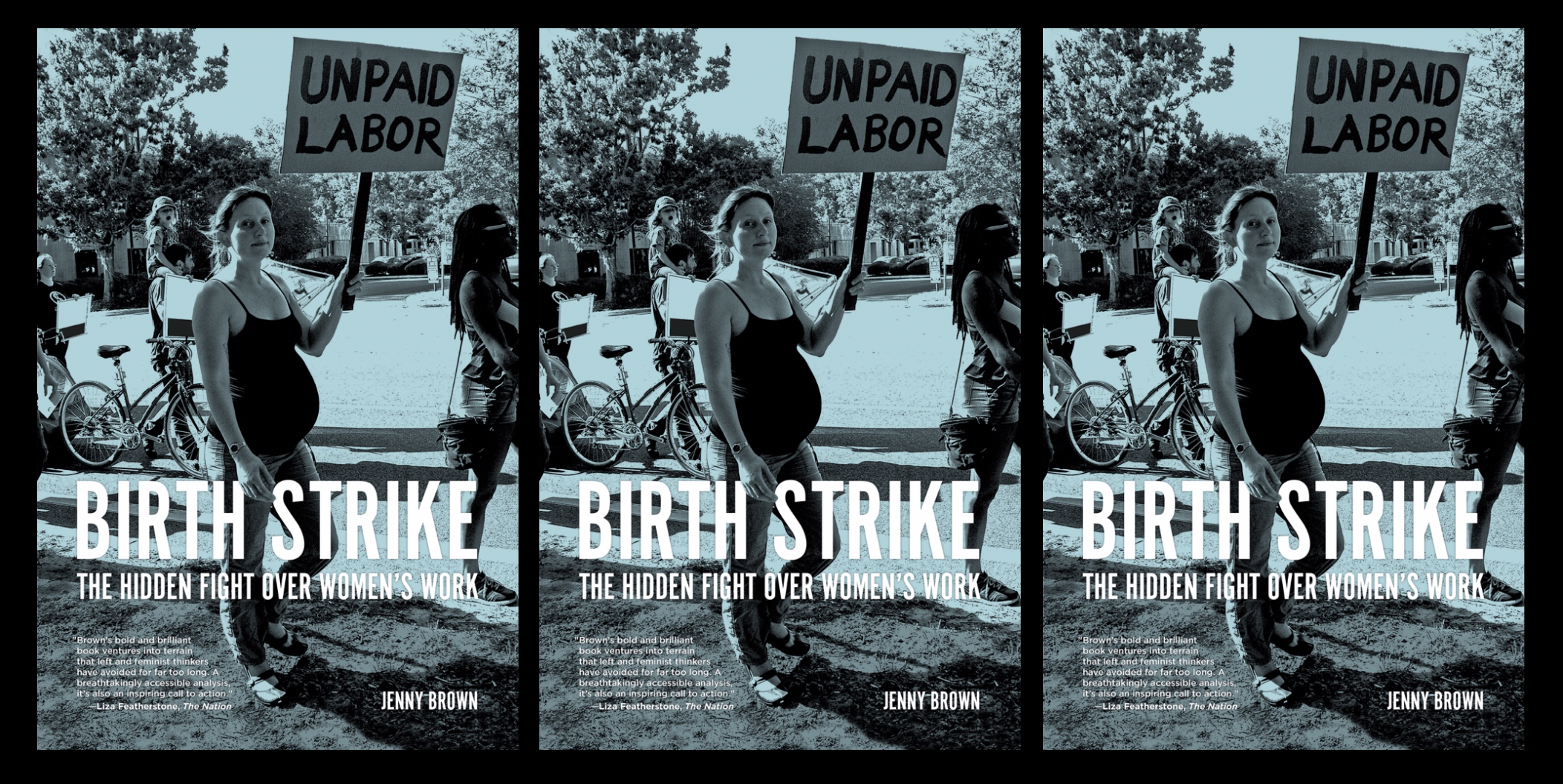
Report Back From a Birth Strike Book Club Organizer
“Birth Strike: A Common Ground Around the Discussion of Women’s Reproductive Rights”
By Christina Drake
Earlier this summer, a group of women that I am friends and regularly meet for book club meetings, decided to read and discuss Birth Strike: The Hidden Fight over Women’s Work. We found the book to be a wealth of information. It also had a refreshing and compelling argument around why the US national argument over women’s reproductive rights was not as much a religious issue but is much more an employment and economic issue. I think we were collectively surprised by how obvious this connection is (when the arguments are laid out) and even more surprised that this is not the national conversation around reproductive rights.
In the national debate over women’s reproductive rights, the fight seems to always be pitted as the sanctity of life versus control over your own body. In my reading group 10 of us read the book; we’re all women of faith. A large part of our group discussion was over the “MAGA” movement and how it has more in common with the feminist arguments (economically) of Birth Strike then may be immediately obvious when just considering desires for American family life. My impression of why voters back MAGA is a desire for the 1950s stereotypical family lifestyle and disgruntlement over there not being a family wage and stable employment. It keeps a large portion of America living paycheck to paycheck and fearful of a financial setback. This was where our group felt that the issues of modern feminism, employment rights and conservative “family” values have a lot of overlap to the average American, regardless of whether you are a Republican or Democrat. Because the national debate around women’s reproductive rights always gets pulled down to the singular decision of whether or not to have a child, rather than all the other factors that a woman has to consider with having a child, the debate is polarized in a very unhelpful way. This is where our group felt that if the national conversation got pulled up to the economic factors that play into reproductive decisions there could be more common ground and progress in our country over supporting children and parents. The US power structure of politicians making economic decisions on behalf of wealthy employers would then be more obvious to a larger segment of Americans. This is where the lessons of how Ruth Bader Ginsburg could be helpful. By strategically going after women’s equality by also advocating for men, she was able to show how women’s equality was also a men’s issue. This could be an effective approach to gaining larger consensus amongst everyday Americans on women’s reproductive rights issues.
If you are on the fence about doing a book club, or even reading the book, it is helpful to understand the type of feminism that Brown is arguing for in the book. It makes the book feel more personal and holistic when this vantage point is considered at the outset of reading the book. It is the anti – “have it all” feminism of the Sheryl Sandbergs of the world. That type of feminism puts a lot of weight on women’s shoulders that is counterproductive. What woman isn’t tired from the expectations put on them, especially once a woman decides to have children? If children are precious to our society, why isn’t there more social support for families so that parents can spend more time nurturing their children to help them become stable and productive adults? Why has our society moved away from the philosophy of “it takes a village” to feeling that their tax dollars should only be spent on benefits that they can immediately see as benefits to them? I want to live in a society that values family so much, that we take it as a national obligation that is more important to us than our military or tax cuts. I don’t want to live in a society that expects a woman to do everything by herself in the important task of raising human beings. The book Birth Strike is fertile ground for conversation rooted in facts and figures that helps gear discussions around women’s reproductive rights out of the trap of being conservative or liberal, and down to the everyday personal of what it means to be a woman considering having a family.
